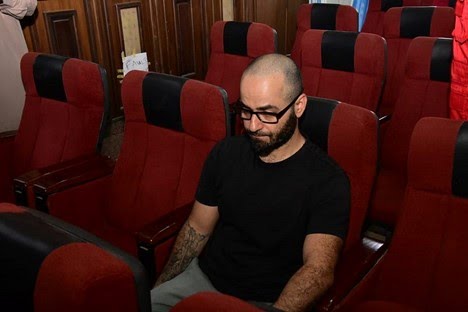By Enyichukwu Enemanna
US employee of cryptocurrency giant, Binance Holdings Ltd. detained in Nigeria since February has been freed and is now heading back to his country.
Tigran Gambaryan, head of financial crime compliance at Binance had charges against him dropped by the Nigerian authorities on Wednesday.
Barely 24 hours later, US officials on Thursday confirmed that Gambaryan had been freed and was on board a US-bound plane following negotiations between the two governments.
The family also confirmed the development in a statement saying, “Today, American citizen Tigran Gambaryan left Nigeria to return home to his family after 8 months of unlawful detention,” the statement reads in part.
Heritage Times HT had reported that the Federal High Court in Abuja, Nigeria’s capital had discharged Gambaryan from money laundering charges filed by anti-corruption agency, Economic and Financial Crimes Commission (EFCC).
He was allowed to leave Kuje prison on Wednesday night.
Reacting, his wife, Yuki Gambaryan, said, “It is a huge relief that this day has finally come. The past eight months have been a living nightmare. I wish it hadn’t taken this long for his release, or that his health had not declined so much, but we can now focus on healing as a family.”
She expressed gratitude to the US government for their efforts in securing his release.
“There were moments I feared this day would never come, but Tigran’s supporters gave me hope and strength,” she added.
On February 28, 2024, Nigerian authorities detained two senior Binance executives: Nadeem Anjarwalla, a 37-year-old British-Kenyan who serves as the regional manager for Africa, and Tigran Gambaryan, a 39-year-old American who is the head of financial crime compliance at Binance.
The executives filed a fundamental rights case against the Nigerian government, citing a violation of their constitutional right to liberty.
The duo was sued by the EFCC and the Federal Inland Revenue Service (FIRS), alongside Binance, on the grounds of tax evasion, foreign exchange contravention, and money laundering.
Anjarwalla later fled Nigeria while in detention, while Gambaryan remained in detention based on a court order.
Gambaryan’s bail applications were rejected twice by the court, which aligned with the EFCC’s view that he was a flight risk at the time.




































